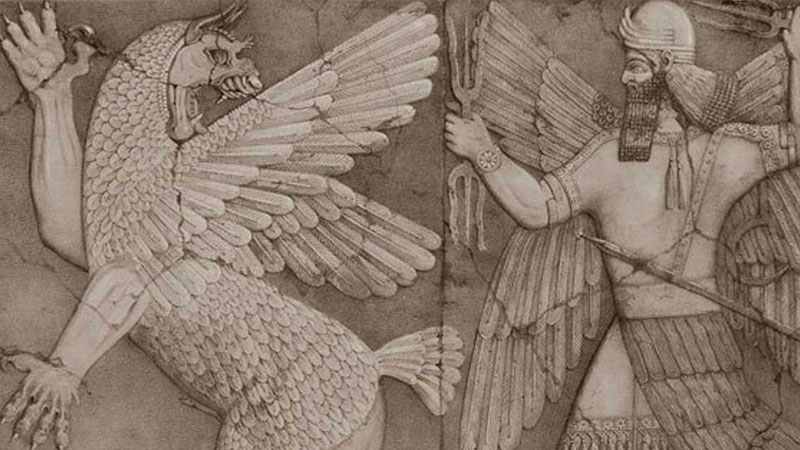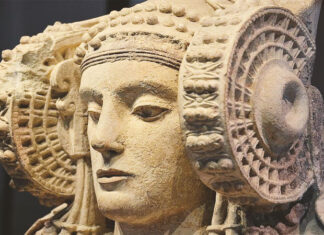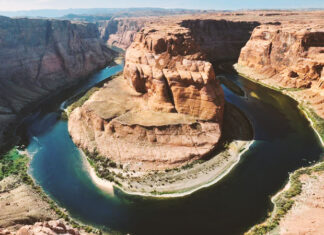Sumer, or “Land of Civilized Kings,” flourished in Mesopotamia, where Iraq is now located, around 5,500 BC.
The Sumerians created an advanced civilization with their own elaborate language and writing system, architecture and arts, astronomy and mathematics.
The religious system was complex, made up of hundreds of gods and, according to ancient texts, each Sumerian city was guarded by its own god.
Humans and gods used to live in harmony and humans served the gods.
The Sumerian creation myth can be read on a clay tablet found in Nippur, an ancient Mesopotamian city founded in approximately 5,000 BC.
The sacred text, called Enuma Elish (The Creation of the Earth), according to the Sumerian tablets begins like this:
When the heavens was not named above, and below the earth had no name, And the primordial ocean Apsu, his father, And chaos, Tiamut, the mother of all. Their waters were mixed, And no field was formed, no marsh was seen; When none of the gods had been called into existence, And none had a name, and no destiny was ordained; Then the gods were created in the middle of the sky, Lahmu and Lahamu were called into being…
Sumerian mythology claims that in the beginning, human-like gods ruled the Earth. When they arrived on Earth, there was much work to be done and these gods worked the soil, digging to make it habitable and extracting its minerals.
The texts mention that at some point the gods revolted against the work they did.
When gods like men They got bored with work and suffered the toll The effort of the gods was great, The work was hard, the anguish was great.
Anu, the god of gods, agreed that his work was too hard. His son Enki, or Ea, proposed to create a man to bear the labor, and so, with the help of his half-sister Ninki, he did so. A god was killed, and his body and blood were mixed with clay. From this material the first human being was created, in the likeness of the gods.
You massacred a god together. With your personality I removed your heavy work I imposed your work on man. … In clay, God and man They will be connected, To a united unit; So that until the end of days The Flesh and the Soul Who matured into a god May the soul of a blood kin be bound.
This first man was created in Eden, a Sumerian word meaning “flat land” or plains.
In the Epic of Gilgamesh, Eden is mentioned as the garden of the gods and is located somewhere in Mesopotamia between the Tigris and Euphrates rivers.
Initially, humans were unable to reproduce on their own, but were later modified with the help of Enki and Ninki.
Thus was created Adapa, a fully functional and independent human being.
This ‘modification’ was made without the approval of Enlil, Enki’s brother, and a conflict between the gods began.
Enlil became man’s adversary, and the Sumerian tablet mentions that men served the gods and went through many hardships and sufferings.
Adapa, with the help of Enki, ascended to Anu, where he was unable to answer a question about “the bread and water of life”.
There are many similarities between this creation story and the biblical story of Adam and Eve in Eden and Enlil’s role as a demon.


















